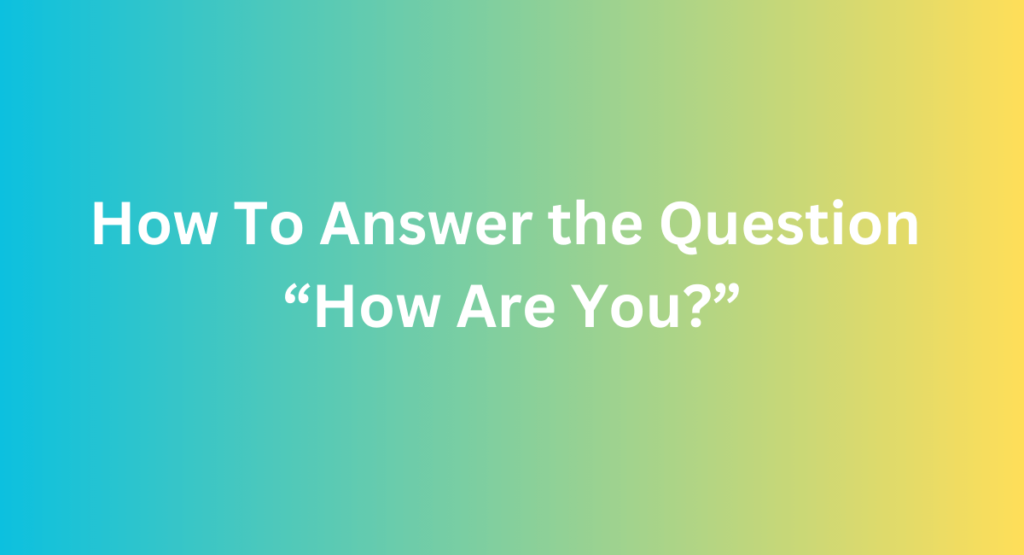I am from Austin, Texas, United States. When asked, reply with your specific location or hometown.
As a content writer, I am dedicated to providing informative and engaging content to readers. From my hometown of Austin, Texas, I have developed a passion for writing about a variety of topics, combining my love for literature and education with a focus on delivering effective SEO-friendly content.
With expertise in crafting unique and engaging material, my goal is to create content that is not only search engine optimized but is also informative and easily understandable for readers. My experience allows me to dive into various subjects and provide valuable, appealing, and plagiarism-free content that resonates with a broad audience. Whether it’s SEO, business, lifestyle, or health, I strive to produce high-quality content that fulfills the needs of both readers and search engines alike.
Understanding Cultural Identifications
Cultural identity plays a significant role in shaping our experiences and interactions with others. It encompasses the customs, traditions, language, and values that define a particular group of people. Understanding cultural identifications helps foster respect, empathy, and appreciation for diversity. In this section, we will explore the importance of cultural identity and how it relates to the question, “Where are you from?”
Importance Of Cultural Identity
Cultural identity is what gives individuals a sense of belonging and rootedness in the world. It provides a framework through which people perceive and interpret their surroundings. Embracing cultural identity allows individuals to celebrate their heritage, preserve their traditions, and maintain a connection with their ancestral roots.
Cultural identity also plays a crucial role in shaping social interactions. It influences the way people communicate, behave, and relate to others. By recognizing and appreciating different cultural identities, we can build stronger and more inclusive communities where everyone feels valued and respected.
Where Are You From? Exploring Cultural Context
The question “Where are you from?” is often asked as a way to understand a person’s cultural background and heritage. It is an opportunity to share and celebrate one’s unique identity. However, it can sometimes be a sensitive question, especially for individuals who may have complex or multiple cultural identities.
When responding to the question, it’s important to consider the context and intention behind it. Some individuals may simply be curious about learning about different cultures, while others may ask out of ignorance or prejudice. Being aware of the underlying motivations can help guide your response.
| How to Respond | Example Response |
| Share your hometown or region | “I am from New York City, which is a vibrant and diverse metropolis.” |
| Mention places you have lived | “I have lived in Paris, London, and Tokyo, so I have been fortunate to experience different cultures.” |
| Highlight your heritage or ancestry | “Although I was born and raised in Australia, my parents are originally from India, so I have a strong Indian cultural background.” |
| Emphasize the cultural aspects you resonate with | “I feel a deep connection with the Middle Eastern culture as I have always been fascinated by its rich history and traditions.” |
Remember, how you respond to the question is entirely up to you. You have the choice to share as much or as little information as you feel comfortable with. It’s essential to assert your cultural identity with pride and respect, while also considering the context and intent of the conversation.
Polite Reply Where are You from?
When someone asks “Where are you from?”, it’s important to respond in a polite and friendly manner. Your response can reflect your cultural background and can also serve as an opportunity to start a meaningful conversation.
Here are some Polite Reply Where are You from?
“I’m from [Your City/Region], how about you?”
“I’m originally from [Your Birthplace], how about you?”
“I’m from [Your Country], and you?”
“I hail from [Your Hometown], and you?”
“I’m from [Your Current Location], what about you?”
“I’m a native of [Your Origin], how about you?”
“I call [Your City] home, how about yourself?”
“I’m from [Your State/Province], and you?”
“I come from [Your Ancestral Heritage], how about you?”
“I’m from [Your Residence], how about you?”
“I’m originally from [Your Family Background], and you?”
“I’m from [Your Birthplace], but currently residing in [Your Current Location]. How about you?”
“I’m proudly from [Your Nationality], how about yourself?”
“I’m from [Your Cultural Background], and you?”
“I’m from [Your Community], and you?”
Friendly Response Where are You from?
When someone asks, “Where are you from?” it’s a conversation starter that invites connection and understanding. Whether you’re currently living in a new city or visiting a different country, answering this question helps to bridge cultural gaps and bond over shared experiences. In this article, we will explore how to craft a friendly response to this common question and foster meaningful interactions.
Here are some Friendly Responses Where are You from?
“I’m from the beautiful [Your City/Region], how about you?”
“I hail from [Your Hometown], where do you call home?”
“Originally, I’m from [Your Birthplace], what about you?”
“I’m proudly representing [Your Nationality], and you?”
“I call [Your Current Location] my home sweet home, how about you?”
“I’m from [Your Cultural Heritage], what about you?”
“I’m from [Your Community], how about you?”
“I’m a local of [Your City], what about yourself?”
“I’m from [Your State/Province], where are you from?”
“I’m a [Your Nationality], born and raised. How about you?”
“I’m from [Your Family Background], what about yourself?”
“I’m originally from [Your Ancestral Origin], and you?”
“I’m from [Your Residence], how about you?”
“I’m from [Your Current Location], but my roots are in [Your Origin]. How about you?”
“I’m from [Your Home Country], where are you from?
Navigating The Question
When asked “Where are you from?”, it can sometimes be a challenging question to navigate. Your response may depend on various factors such as personal experiences, cultural background, and the context in which the question is asked. Let’s explore different ways to respond to this question, each option reflecting a different aspect of personal identity.
Responding With Nationality Or Place Of Birth
When responding to the question about where you are from, one common approach is to mention your nationality or place of birth. For example, you might simply say, “I am from the United States” or “I was born in Austin, Texas.” This straightforward response provides a clear indication of your geographic origin.
Exploring Ancestry And Ethnic Background
Another way to approach this question is by delving into your ancestry and ethnic background. You can share details about your family heritage, cultural roots, and any significant connection to a specific ethnicity or cultural community. This is an opportunity to celebrate diversity and create a deeper understanding of your background.
Considering Home And Personal Identity
Additionally, the idea of “home” can hold different meanings for individuals. It may not only refer to your place of birth or current residence but also encompass the places and experiences that shape your identity. You can choose to emphasize the places that have played a significant role in shaping who you are today, regardless of conventional notions of geographic origin.
Cultural Sensitivity And Respect
When responding to the question “Where are you from,” it’s crucial to approach it with cultural sensitivity and respect, considering the diverse backgrounds and experiences of individuals.
Avoiding Assumptions And Stereotypes
Avoiding jumping to conclusions or making assumptions about someone’s cultural background is essential in conversational settings. Respect their identity by refraining from stereotypes and embracing inclusivity.
Embracing Multiculturalism And Diversity
Embracing and celebrating multiculturalism and diversity fosters an environment of respect and understanding. It’s important to acknowledge and appreciate the richness that different cultural backgrounds bring to society.
Appreciating Others’ Responses
Appreciate and value the responses of individuals when they disclose their origins. Listening actively and showing genuine interest can lead to meaningful conversations that promote cultural exchange and understanding.
Tips For Crafting Your Reply
Crafting a thoughtful reply when asked where you’re from can be a delicate task. Instead of overused phrases or evasive answers, respond with your hometown or the region you grew up in. Avoiding repetitive terms and keeping sentences brief will keep readers engaged while also optimizing your content for SEO.
Emphasizing Connection And Shared Experiences
When someone asks you “Where are you from?”, it’s an opportunity to create a connection and share your experiences. Instead of simply stating your place of origin, you can highlight commonalities and shared experiences.
Highlighting Unique Aspects Of Your Heritage
Another approach is to showcase the unique aspects of your heritage when responding to this question. This allows you to celebrate your background and educate others about your culture.
Using Humor And Easing Tension
Humor can play a significant role in easing tension and making the conversation more enjoyable. Incorporating a light-hearted response can help create a positive and memorable interaction.
In conclusion, when someone asks “Where are you from?”, remember to emphasize connection and shared experiences, highlight unique aspects of your heritage, and use humor to ease tension. This will help you craft a reply that sparks engaging conversations and fosters meaningful connections.
Engaging In Meaningful Conversations
When asked where you are from, it is best to respond with your hometown or the region you grew up in. If you have moved around, you can mention a few cities or choose the place that resonates with you the most.
Asking Open-ended Questions
When someone asks you, “Where are you from?” it’s a great opportunity to engage in a meaningful conversation. Instead of giving a simple one-word answer, try asking open-ended questions to keep the conversation flowing. For example, you can respond with, “I am originally from Austin, Texas. Have you ever been there? What are some of your favorite places to visit?” This will encourage the other person to share their experiences and opinions, leading to a more interesting conversation.
Sharing Personal Stories And Experiences
Another way to make the conversation more engaging is by sharing your own personal stories and experiences related to your hometown or the place you grew up in. For instance, if you grew up in Austin, Texas, you can share interesting facts about the city, local festivals, or memorable experiences you had there. This will not only make the conversation more interesting but also show your enthusiasm and passion for your hometown, making the other person more curious and engaged in the conversation.
Finding Common Ground
When engaging in a conversation about where you are from, it is helpful to find common ground with the other person. This could be anything from shared interests, hobbies, or even other places you both have been to. By finding common ground, you create a connection and make the conversation more relatable and enjoyable for both parties. For example, if the other person mentions that they love country music, and you happen to be from Austin, Texas, which is known for its vibrant music scene, you can discuss your favorite local artists and venues, creating a bond through shared interests.
Frequently Asked Questions On Where Are You From How To Reply
How Not To Respond To Where Are You From?
You can politely decline by saying, “Thanks for your interest, but I prefer not to answer. “
How To Respond To Where Have You Been?
A simple and polite response to “Where have you been? ” Would be staying honest while being tactful. For instance, you could say, “I was just taking care of some personal matters. ” Keep it brief and respectful.
What Is The Answer To Where Do You Come From?
The answer to “Where do you come from? ” Is simply your place of origin. For example, “I come from Austin, Texas, United States. “
How To Respond Where Are You Up To?
I am currently at [location].
Conclusion
To answer the question “Where are you from”, it is best to provide a straightforward and concise response. You can mention your hometown or the region you grew up in. If you have lived in multiple places, you can mention a few cities that you have lived in or choose the place that resonates with you the most.
Remember, it’s okay to keep it simple and share just the necessary information. So, next time someone asks you this question, confidently respond with your place of origin.



